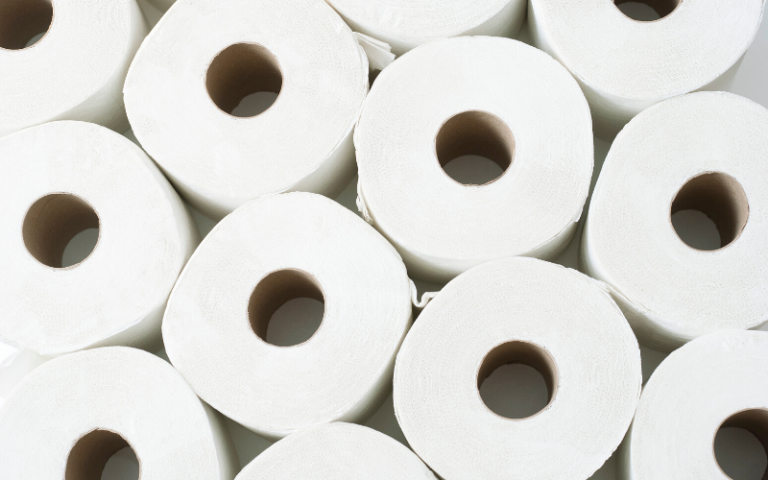Let's face it, we are big toilet paper consumers. Every year we use 4 kilos each and almost 300,000 trees are cut down to produce it. But there's more.

Let’s face it, we are big toilet paper consumers. Every year we use 4 kilos each and almost 300,000 trees are cut down to produce it. But there’s more. Did you know that it does more damage to the environment than an SUV? Toilet tissue is destroying forests and significantly influencing climate change.
Too Much Toilet Paper in the US
The alarm comes from a new report by the Natural Resources Defense Council and Stand.earth entitled “The Issue with Tissue“. According to the experts, many toilet paper manufacturers such as Procter & Gamble, Kimberly-Clark and Georgia Pacific use wood from Canada’s boreal forests.
As a result, their paper does not contain any recycled material.
“Most Americans probably don’t know that the toilet paper they throw away comes from ancient forests. Removing those trees is a great loss to the Planet. Only their maintenance can prevent climate change,” says Anthony Swift, director of the NRDC’s Canada Project, in a press release.
We have to point out that 40% of toilet tissue in Europe comes from recycled materials, which is hardly ever the case in America. Here, 98% of consumers prefer expensive natural toilet paper, produced directly from virgin forest trees.
Specifically, on average, every American uses three rolls of toilet tissue every week (about $37 a year). This means that the USA, which accounts for just 4% of the world’s population, is responsible for as much as 20% of total material consumption. What does that involve? Not only deforestation but also the release of toxic gases into the atmosphere for processing the product.
How Is Toilet Paper Made
Companies use different materials to produce toilet paper. The main ingredient, however, is wood pulp. It is possibile to use straw and bamboo to make it, but many companies still prefer virgin wood fibre. The virgin fibre is ecologically destructive according to the NRDC. It can come from spruce trees, conifers in general and must be processed using a chemical process that requires a lot of energy. In addition, to bleach the fibre you have to go through a chemical discolouring process.
To sum up, making toilet tissue from 100% virgin fibre “generates three times more carbon than other types of cellulose”, according to the NRDC and Stand.earth ratio. Producing a single roll of paper also requires 37 litres of water, and transporting the paper can waste a lot of gas.
The Best and Worst Brands
In the NRDC and Stand.earth report there are scores based on sustainability. Companies that do not use recycled material are: Charmin Ultra, Quilted Northern, Kirkland, Up & Up Soft and Strong and Angel Soft. Those that use little recycled material are: Scott 1000, Scott Comfort Plus, Cottonelle Ultra and Trader Joe’s Super Soft Bath. While the brands promoted are Everyday Value, Earth’s First, Natural Value, Green Forest, Seventh Generation and Trader Joe’s Bath Tissue.
According to the report, the worst would be Procter & Gamble which has however promised to reduce virgin fibre by 2025.









